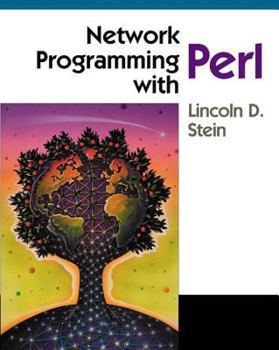Network Programming with Perl
This is a superb book. Another splendid book from Lincoln, whose mastery and lucid exposition make this a must-have for the serious Perl programmer. --Jon Orwant, Chief Technology Officer, OReilly &... This description may be from another edition of this product.
Format:Paperback
Language:English
ISBN:0201615711
ISBN13:9780201615715
Release Date:December 2000
Publisher:Addison-Wesley Professional
Length:784 Pages
Weight:2.60 lbs.
Dimensions:1.6" x 7.2" x 9.1"












